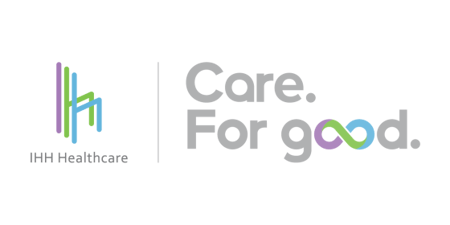
Client:IHH Healthcare Singapore
Industry:Healthcare
Region:Asia Pacific & Japan
Removing Pain Points with Automation

20
automation processes run daily
S$700,000
approximate potential cost savings per year through Clinic Listing and Report Automation for 1,000 corporate customers
S$1.5 million
potential cost savings per year with 1,000 third-party administrator reports written by robots per month, with an additional 1,000 underway
Client Overview
IHH Healthcare, one of the world’s largest healthcare networks, runs 83 hospitals in 10 countries including home markets of Malaysia, Singapore, Turkiye, and India. It provides a full spectrum of integrated healthcare services. These include primary care, laboratory services, emergency care, and complex surgeries.
In Singapore, IHH Healthcare is the largest private healthcare provider with over 1,000 beds, which is close to half of all private hospital beds in the country. It operates four hospitals – Gleneagles Hospital, Mount Elizabeth Hospital, Mount Elizabeth Novena Hospital, and Parkway East Hospital – and more than 30 primary care clinics. It has over 1,500 accredited specialists and 5,000 employees.
While the healthcare group strives to give patients exemplary care, staff working with over 100 legacy systems behind the scenes in IHH Healthcare Singapore were feeling the pain.
Its automation journey began in 2017, when an audit highlighted an issue arising from the many legacy systems. Each time an employee left the company, someone had to manually check and remove all the accounts of that employee.
With so many, there were bound to be a few that were missed. To resolve this problem, the company turned to automation.
After evaluating multiple options, it chose UiPath for its range of partners and price. The automation platform also put together a proof of concept, which eased IHH Healthcare Singapore’s concerns before it jumped into full-scale implementation.
“After implementing the first automation process, we realized its value and how much it improved productivity. We then actively looked into other areas that had potential for automation,” recalled Harry Chan, Assistant Vice President of Information Technology at IHH Healthcare Singapore.
There was, however, a hiccup at the beginning. After going live with the first set of automation features, the company noticed that without monitoring, errors could occur within automation.
We realized we had to invest in maintenance and have a dedicated support team whenever we deployed something new. Making sure that we address any errors in a timely manner is important. Otherwise, employees will not get the result they hope for and will lose faith.
Harry Chan · Assistant Vice President of Information Technology, IHH Healthcare Singapore
IHH Healthcare Singapore has since learnt to anticipate any potential issues before implementation. Six years on, it is reaping the rewards.

Round-the-Clock Accessibility
As a medical provider, operations run day and night. Automation enables some services to be available 24/7 instead of only during office hours, when they would be completed manually.
For instance, when employees forgot their passwords to their legacy application accounts, they used to have to fill in a request form that had to be approved by a supervisor before being routed to the administrator, who would reset it manually.
Now, a chatbot runs the entire process 24/7. “Previously, if somebody forgot their password for the operating theatre system and needed it to view the consumables for an operation at 2am, they could not do anything. But now, they can easily engage with the chatbot, and the automation will complete the password reset,” Chan explained.
Automation has also made possible tasks that were previously impossible, such as checking for dead links on the company website. With thousands of branches linked to the main uniform resource locator, the digital marketing team “simply could not check every single one”. But with automation, they are now able to do so.
Improving Employee Satisfaction
Many departments like Human Resources, Finance, and Procurement spend many working hours on different repetitive and tedious tasks, taking them away from higher-value ones.
With each new automation implementation, employee satisfaction improves because the time at work feels more productive. But the sheer number of departments and different use cases makes it difficult for the company to know what to focus on.
Which is why, in collaboration with UiPath, it organized its first Singapore Citizen Developer and Botathon in November 2022. Rather than just sending employees to formal training to acquire certificates, the event puts heavy emphasis on applying the skills learnt.
Employees begin with a personal pain point they experience daily at work. After completing the online training, they work on creating an automation solution for it.
There is greater motivation when working on something you care about than a hypothetical problem you cannot relate to. The assistance and handholding provided by UiPath during the process also made a difference. The Botathon provided ample time to solve issues and errors together with the trainer.
Harry Chan · Assistant Vice President of Information Technology, IHH Healthcare Singapore
One such use case that originated from the event was the Clinic Listing and Report Automation. Since IHH Healthcare Singapore provides third-party administrator services to over 2,000 corporate customers, staff members had to prioritize their top clients when writing reports. Before implementing automation, the team could only complete up to 20 per month because they “simply did not have the resources to extend it to other customers,” said Chan.
With automation, they now automate the entire process and run it at scale. Though this winning project from the Botathon is currently only scaled to cover half of the customers, it saves the organization approximately S$700,000 a year. When extended to the full 2,000 customers, the yearly cost savings would double to approximately S$1.5 million.
“My ultimate goal is to eliminate all repetitive tasks so employees do not have to suffer in silence. Whenever staff members have one such task and feel that they could be more productive, they should feel like they can turn to automation to carry out that process,” said Chan. “We also hope that by creating automation on their own, employees gain a sense of accomplishment and mission.”
Cultivating Champions
The Botathon also aims to cultivate champions within the various departments who can act as catalysts in the automation journey. “The Botathon helped us to raise awareness and generate attention on automation, which was difficult in such a diverse company,” said Chan.
Seeing the champions implementing automation and improving workflow encourages other employees to be more accepting of automation and come up with their own automation ideas.
The first Botathon was such a success that IHH Healthcare Singapore plans to hold a second one in June 2023.
The first edition focused on back-end departments to ensure the company chalked up enough experience in running the platform before expanding it to other operations. With the second Botathon, IHH Healthcare Singapore hopes to make direct improvements to patient care by targeting patient-facing departments and automating processes such as registration, discharge, and follow-up reminders.
Employees can now work with the champions in their respective departments to implement automation processes that can improve their workflow. They can also submit their suggestions to the Automation Hub, a workspace provided by UiPath to manage automation ideas.
When we cultivate multiple champions within the company, they can go around and help others who are still doing repetitive tasks in their daily work. That's what we want to achieve.
Harry Chan · Assistant Vice President of Information Technology, IHH Healthcare Singapore
Related case studies
Ready for your own case study?
Speak to our team of knowledgeable experts and learn how you can benefit from RPA.





